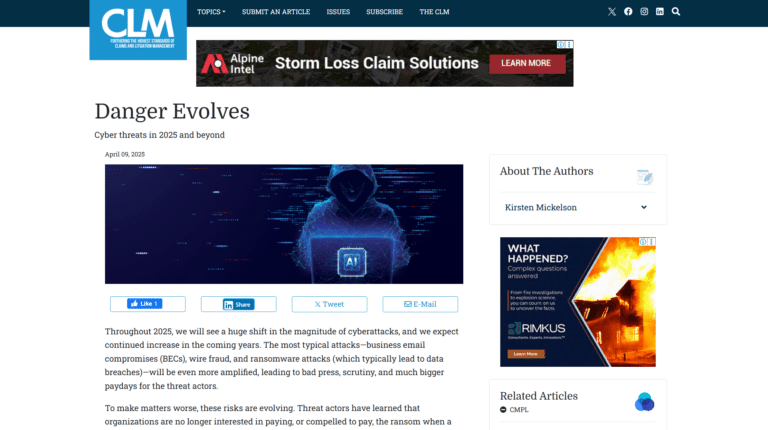The beginning of the year brings a unique opportunity for carriers to evaluate the performance of their portfolios. It serves as a natural checkpoint to analyze the previous year’s data, as well as identify areas that require attention and transition live portfolios to legacy where needed. In a recent survey,* roughly 30% of run-off deals are motivated by disposing of non-core business, more than 15% relate to trends in social inflation and managing claims volatility, and nearly 10% of deals are done to reduce expenses.
For underperforming books of business, this period is particularly crucial, as carriers can make informed decisions on transitioning them into run-off, to then focus on live programs to drive strategic growth. Here, Chris Hampshire, VP — Carrier Practice Sales, shares three ways to optimize underperforming portfolios through partner sourcing.
- Leverage Claims Management Technology
Conduct a comprehensive data analysis to identify potential underperforming segments within the portfolio, considering factors such as loss ratios, claims frequency, and profitability. Claims management technology that offers advanced data analytics is key to unraveling the root cause of underperforming portfolios. In doing so, carriers can identify hidden patterns, outliers, innovative claim-closure strategies, and emerging risks. By leveraging data-driven insights, carriers gain a strategic advantage in making informed decisions to know when to retain, improve, or make the decision to move their underperforming portfolio to legacy.
Integrating existing claims systems with leading technology, such as Gallagher Bassett’s (GB) award-winning RMIS suite, Luminos, provides unmatched analytics and risk management insights that can measurably improve efficiency and closure rates on underperforming books of business. From simple menus and data modules to drill-down features at your fingertips, this platform ensures agile responses to complexities, contributing to swift resolutions and an enhanced claims management strategy.
- Utilize Specialized Expertise at your Fingertips
Improving outcomes on underperforming portfolios introduces distinct challenges requiring specialized expertise. Collaborating with a strategic partner brings focused knowledge to the forefront, empowering carriers to successfully navigate claims of every complexity with confidence.
Leveraging a strategic partner, like GB’s Legacy Practice Group, to navigate legal, financial, and regulatory requirements can help carriers optimize claims management processes, implement sustainable frameworks for closing run-in files, and reclaim critical internal resources for capital-generating opportunities.
- Transition Live Portfolios to Legacy
Managing the transition process with partner sourcing is an indispensable strategic move for carriers seeking to optimize underperforming portfolios. A successful transition involves transparent communication, strategic decision-making, and collaboration with specialized partners. Effectively managing the unique qualities of legacy claims requires striking a balance that extends beyond conventional operational protocols. GB’s Legacy Practice Group ensures compliance with regulatory requirements, mitigates risks associated with the transition, and provides guidance on optimizing the underperforming portfolios. In addition, seamless integration is facilitated by GB’s dedicated Implementation Team.
Our team of dedicated experts has successfully managed a diverse range of legacy claims for businesses across every industry. With more than 50 years of expertise in resolving complex claims, we not only anticipate but also understand evolving industry trends. GB introduces a flexible approach, avoiding fixed costs and adapting to the unique needs of our partners.
This strategic collaboration enables our partners and their staff to concentrate on current and future customers, leaving GB to expertly handle the needs of prior customers. To learn more about GB’s legacy claims management services and team of experts, book a free consultation.
*PwC Global Insurance Run-off Survey






